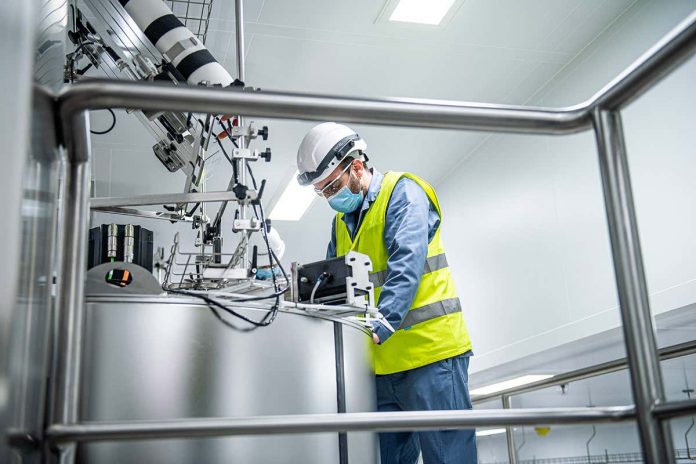
OLIVIER MAIRE/EPA-EFE/Shutterstock
Early results from another coronavirus vaccine trial are even more promising than those Pfizer announced earlier this month. The Moderna mRNA-1273 vaccine seems to be 95 per cent effective and to work in those who need protecting the most – people aged over 65 – the US-based company announced today. The vaccine can also be stored in a normal freezer or fridge.
If the Moderna and Pfizer vaccines really do work this well, the prospects look good for other coronavirus vaccines that work in the same way, several of which are already in human trials. Such vaccines are desperately needed: nearly 55 million covid-19 cases have now been reported globally, with cases rising especially fast in the US, which has been reporting more than 150,000 cases per day.
More than 30,000 people in the US aged 18 and over are taking part in the phase III trial of the Moderna vaccine. Half of the participants were given a placebo rather than the actual vaccine.
Advertisement
The interim analysis is based on the first 95 cases of covid-19 detected. Ninety of those people – including 15 who had severe cases – were among those given the placebo and just five – none with severe symptoms – were among those given the vaccine.
The company says the 95 people who got covid-19 included people aged 65 or over, and 20 people “identifying as being from diverse communities (including 12 Hispanic or LatinX, 4 Black or African Americans, 3 Asian Americans and 1 multiracial)”.
This is especially promising because the results of the trial by Pfizer and BioNTech don’t include details of the age profiles of participants, so it isn’t clear whether the vaccine has been tested – and works – in those over 65.
However, Anna Blakney at Imperial College London says we will need to see more data to confirm that vaccination is effective in older individuals. “There’s not really a difference in efficacy between the two vaccines,” she says.
So far, the results also suggest that the Moderna vaccine is safe. Some participants reported pain at the injection site, tiredness, headaches and muscle or joint aches, as often happens after vaccinations. No serious side effects were reported.
The Moderna and Pfizer vaccines are both messenger RNA (mRNA) vaccines, and consist of the gene for making the spike protein that protrudes from the outside the coronavirus. After the mRNAs enters human cells, these cells start making the spike protein. The protein moves to the outside of these cells, where it prompts an immune response.
Three other mRNA coronavirus vaccines are already in human trials, so the prospects for these look good, too. “It is really promising for the field of mRNA vaccines in general,” says Blakney.
What’s more, mRNA vaccines are easier to manufacture than more traditional vaccines, she says. “It’s just so much easier to make them at scale.”
There are also five DNA vaccines in human trials. Here, the virus spike protein gene is delivered in the form of DNA rather than mRNA. However, special equipment and training is needed to dose people with DNA vaccines, unlike with mRNA vaccines.
There are also several adenovirus vaccines in human trials, including one being developed by AstraZeneca and Oxford University, and Russia’s Sputnik V. These vaccines also work by delivering the gene for the spike protein to cells, but packaged inside an empty adenovirus rather than in fatty droplets like most mRNA and DNA vaccines.
Russia claimed last week that Sputnik V is 92 per cent effective but many experts say there have been too few covid-19 cases in that trial so far to justify this claim.
If at least some of these other vaccines prove as effective, as is now looking much more likely, the task of vaccinating the world’s population as soon as possible will be much easier.
One downside of the Moderna vaccine is that each dose contains more mRNA than the Pfizer vaccine, making it harder to manufacture. Nonetheless, Moderna says it expects to have 20 million doses of mRNA-1273 ready to ship in the US by the end of the year, and is on track to manufacture between 500 million and 1 billion doses in 2021. Pfizer expects to globally produce up to 50 million vaccine doses in 2020 and up to 1.3 billion doses in 2021.
The mRNA vaccine developed at Imperial College London, which is expected to begin phase III trials soon, is a so-called self-amplifying mRNA vaccine. This means more copies of the mRNA are made after it enters cells, so a much lower dose is needed than with the Moderna and Pfizer vaccines, and it can be manufactured even faster.
More on these topics:











